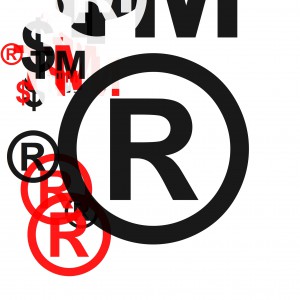August 29, 2019

On May 24, 2019, Tom Brady’s company, TEB Capital Management, INC. (“TEB”), submitted separate intent-to-use trademark applications for “Tom Terrific” (the “Mark”) in connection with international class 025 for T-shirts and shirts, and international class 016 for collectible trading cards, sports trading cards, posters, and printed photographs, respectively. These applications were refused under principles of trademark law for falsely suggesting a connection with former Mets pitcher Tom Seaver, and naming a living individual, other than Tom Brady, who would be associated with the goods. For New York Mets fans, this was an obvious decision, but for the United States Patent and Trademark Office (“USPTO”), there was more nuance involved.
Why were Tom Brady’s “Tom Terrific” applications refused?
Trademark Law Supporting the Refusal
On August 22, 2019, a nonfinal Office Action notified TEB that the Mark was refused registration based on Sections 2(a) and 2(c) of the Lanham Act for the Mark’s false connection with a person or institution and consisting of the name of a living individual. The refusal relies on a letter of protest submitted by a third party on August 4, 2019, documenting evidence that “Tom Terrific” is a nickname otherwise better associated with the fame and reputation of Tom Seaver. Based on this evidence, the USPTO decided that “Tom Seaver is so well-known that consumers would presume a connection” between the applied for Mark and Tom Seaver, rather than Tom Brady.
How Tom Brady Could Respond to the USPTO Refusal of Registration
When a nonfinal Office Action is issued, applicable trademark law allows applicants six months to respond with evidence and arguments in support of registration. With respect to the application at hand, the USPTO has suggested that the registration refusal could be withdrawn if written consent were provided by Tom Seaver for TEB to use and register the Mark in connection with the subject goods. Alternatively, TEB could provide evidence that the public does not identify “Tom Terrific” with Tom Seaver but, instead, associates the Mark with Tom Brady.
Considering the facts at issue, this will be a difficult refusal for TEB to overcome. Tom Brady has already gone on record stating that the filing of the “Tom Terrific” trademark application was, in fact, motivated by his hatred of the nickname and his associated desire to prevent others from using it in connection with describing him. However, this approach will likely fail by virtue of the fact that trademark law only attaches rights to marks that are used in commerce. As such, if TEB’s intention was never to use the Mark in commerce, but only to prevent others from using it, then the Mark would not be eligible for trademark protection.
As this matter demonstrates, when applying for trademark registration, it is important for businesses and individuals alike to consult with a seasoned trademark attorney in order to avoid USPTO refusals, as well as to minimize the risk of disputes with third parties. If you are interested in learning more about the trademark application process, or if you are involved in a trademark dispute, please email us at info@kleinmoynihan.com, or call us at (212) 246-0900.
The material contained herein is provided for informational purposes only and is not legal advice, nor is it a substitute for obtaining legal advice from an attorney. Each situation is unique, and you should not act or rely on any information contained herein without seeking the legal advice of an experienced attorney.
Attorney Advertising
Related Blog Posts:
Common Law Trademark Rights in “Florida Avenue”
FUCT?: Trademark Law Ruling Will Protect Certain Immoral and/or Scandalous Marks



